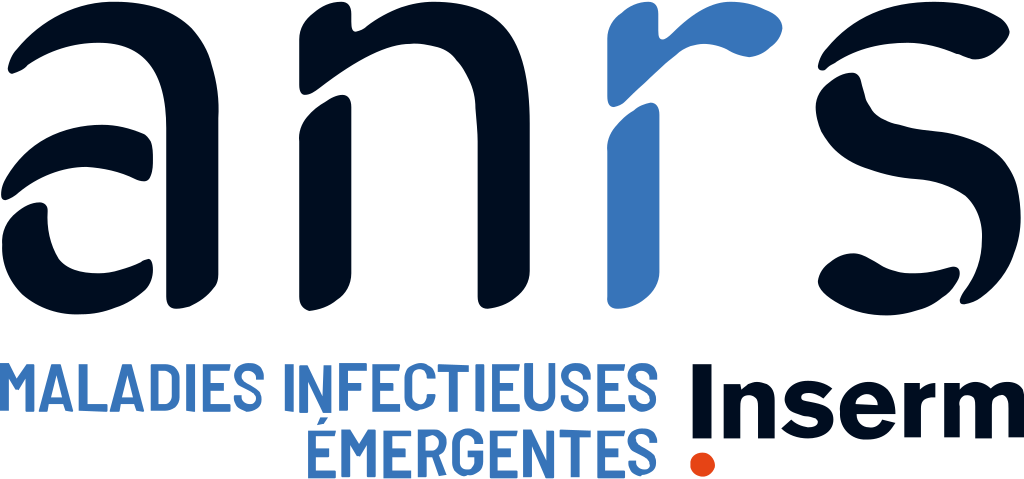WELCOME
HIV-1 RT and protease sequencing and drug susceptibility testing have been done in research settings for more than ten years to elucidate the genetic mechanisms of resistance to antiretroviral drugs. The accumulation of retrospective and prospective data has led expert panels to recommend the use of resistance testing in the decision of treatment of HIV-infected patients. The French ANRS-MIE (National Agency for AIDS Research – Emergent Infectious Diseases) AC43 Resistance group provides HIV-1 genotypic drug resistance interpretation’s algorithms in order to guide physicians in the choice of antiretroviral treatment. These algorithms are mainly based on correlation between drug resistance mutations and virological outcome from patients failing antiretroviral therapy. The rules are presented as tables listing mutations conferring genotypic resistance or possible genotypic resistance to anti-HIV drugs and will be updated regularly.

LAST UPDATE
APRIL 2024![]() Last tables of rules HIV-1 (V35)
Last tables of rules HIV-1 (V35)![]() Last tables of rules HIV-2 (V31)
Last tables of rules HIV-2 (V31)![]() HIV-1 PCR and Sequencing Procedures
HIV-1 PCR and Sequencing Procedures
NOVEMBER 2023![]() Last tables of rules HIV-1 (V34)
Last tables of rules HIV-1 (V34)
OCTOBER 2021![]() NGS procedure
NGS procedure
NOVEMBER 2019![]() Last tables of rules HIV-2 (V30)
Last tables of rules HIV-2 (V30)
RECOMMANDATIONS OF THE ANRS AC43 RESISTANCE GROUP
![]() HIV drug-resistance testing in plasma is recommended in persons with HIV infection at entry into care regardless of whether antiretroviral therapy (ART) will be initiated immediately or deferred.
HIV drug-resistance testing in plasma is recommended in persons with HIV infection at entry into care regardless of whether antiretroviral therapy (ART) will be initiated immediately or deferred.
![]() Standard genotypic drug-resistance testing in plasma in ARV-naive persons involves testing for mutations in the reverse transcriptase (RT), protease (PR) and integrase (IN) genes.
Standard genotypic drug-resistance testing in plasma in ARV-naive persons involves testing for mutations in the reverse transcriptase (RT), protease (PR) and integrase (IN) genes.
![]() Drug-resistance testing in the setting of virologic failure should be performed while the person is taking prescribed ARV drugs or, if not possible, within 4 weeks after discontinuing therapy. If greater than 4 weeks has lapsed since the ARVs were discontinued, resistance testing may still provide useful information to guide therapy, recognizing that previously selected resistance mutations can be missed.
Drug-resistance testing in the setting of virologic failure should be performed while the person is taking prescribed ARV drugs or, if not possible, within 4 weeks after discontinuing therapy. If greater than 4 weeks has lapsed since the ARVs were discontinued, resistance testing may still provide useful information to guide therapy, recognizing that previously selected resistance mutations can be missed.
![]() In any case of HIV RNA > 50 copies/mL in CSF of a patient treated by ARV, genotypic resistance testing should be performed on the CSF. ARV drug level measurements should be also performed in CSF.
In any case of HIV RNA > 50 copies/mL in CSF of a patient treated by ARV, genotypic resistance testing should be performed on the CSF. ARV drug level measurements should be also performed in CSF.
![]() Genotypic testing in plasma is recommended as the preferred resistance testing to guide therapy in antiretroviral (ARV)-naive patients.
Genotypic testing in plasma is recommended as the preferred resistance testing to guide therapy in antiretroviral (ARV)-naive patients.
![]() HIV drug-resistance testing in plasma should be performed to assist in the selection of active drugs when changing ARV regimens in persons with virologic failure (confirmed plasma HIV RNA >50 copies/mL). In persons with plasma HIV RNA >50 but <200 copies/mL, testing may be unsuccessful in plasma and testing using proviral DNA (cell associated HIV DNA) could be considered. In any case of virological failure, plasma drug level measurements of ARVs should be performed.
HIV drug-resistance testing in plasma should be performed to assist in the selection of active drugs when changing ARV regimens in persons with virologic failure (confirmed plasma HIV RNA >50 copies/mL). In persons with plasma HIV RNA >50 but <200 copies/mL, testing may be unsuccessful in plasma and testing using proviral DNA (cell associated HIV DNA) could be considered. In any case of virological failure, plasma drug level measurements of ARVs should be performed.
![]() Drug-resistance testing in the setting of virologic success in patients with previous episodes of virologic failures, not documented with resistance testing in plasma, should be performed if a therapeutic change is needed for other reasons (side effects, treatment simplifications, etc …) using proviral DNA sequencing (cell associated HIV DNA), recognizing that previously selected resistance mutations can be missed.
Drug-resistance testing in the setting of virologic success in patients with previous episodes of virologic failures, not documented with resistance testing in plasma, should be performed if a therapeutic change is needed for other reasons (side effects, treatment simplifications, etc …) using proviral DNA sequencing (cell associated HIV DNA), recognizing that previously selected resistance mutations can be missed.

